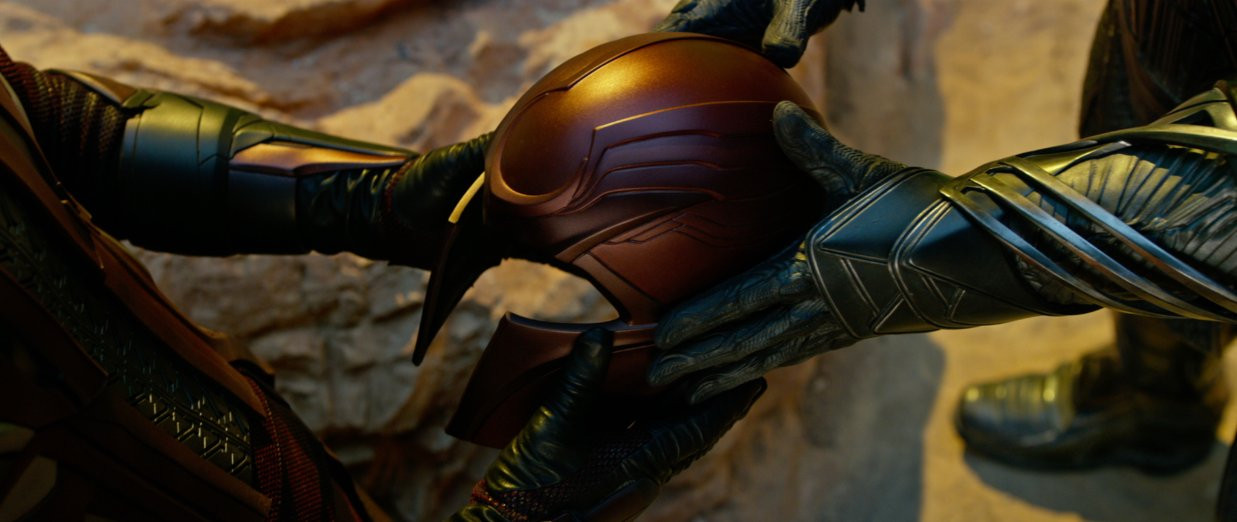The X-Men franchise is no stranger to dramatic moments, character sacrifices, and ambiguous fates. Among the many mutants who populate this universe, Alex Summers, also known as Havok, has consistently been a fan favorite. Portrayed by Lucas Till in the prequel era of the X-Men films, Havok brought a powerful energy-blasting mutant to the team. However, when X-Men: Apocalypse hit theaters, a burning question arose among viewers: Did Alex die in X-Men Apocalypse?
This question isn’t just casual fan speculation. Havok’s fate in Apocalypse is left somewhat open to interpretation, fueling debates and theories about his survival. For those seeking clarity on Havok’s destiny within the X-Men: Apocalypse narrative, we delve into the details, examine the evidence, and unpack the ambiguity surrounding his potential demise.
The Scene in Question: The Xavier’s School Explosion
To understand the confusion surrounding Alex Summers’ fate, it’s crucial to revisit the pivotal scene in X-Men: Apocalypse where his supposed death occurs. During Apocalypse’s devastating attack on Xavier’s School for Gifted Youngsters, Havok plays a key role in defending the students and staff.
As Apocalypse and his Horsemen unleash chaos, Havok utilizes his mutant abilities to contain the destructive energy waves emanating from Apocalypse’s assault. In a heroic effort to protect his fellow mutants, Alex pushes his powers to their limit, attempting to absorb and redirect the overwhelming force.
Pictured is a promotional still from X-Men: Apocalypse, showcasing the intensity and scale of the mutant conflict.
However, the energy proves too much to handle. A massive explosion erupts, engulfing Havok and seemingly obliterating him in the process. The scene is chaotic and impactful, leaving viewers with the impression that Alex Summers has made the ultimate sacrifice to save his friends.
Following the explosion, there is no explicit confirmation within the movie that Havok is deceased. Characters react to the devastation and loss of the school, but there isn’t a scene specifically dedicated to mourning Alex or confirming his death in the immediate aftermath. This lack of definitive closure is a key reason why the question of whether Alex truly died persists.
Examining the Ambiguity: Is Death Confirmed?
While the explosion in X-Men: Apocalypse certainly looks fatal for Havok, several factors contribute to the ambiguity surrounding his death, leading fans to question if he truly perished:
- Off-Screen Demise: Alex’s apparent death occurs amidst a large explosion. We do not see his body or any explicit visual confirmation of his demise. In cinematic storytelling, particularly within superhero narratives, off-screen deaths are often less certain than those depicted directly.
- Mutant Resilience: X-Men, by their very nature, possess extraordinary abilities and resilience. Havok, while not invulnerable, is a powerful mutant capable of energy absorption and manipulation. It’s plausible, within the context of the X-Men universe, that he could have survived the explosion, albeit with severe injuries.
- Lack of Character Mourning: As mentioned, the film doesn’t feature a dedicated scene where characters explicitly mourn Havok’s death or confirm it unequivocally. While there is a sense of loss and devastation after the school’s destruction, the focus is broader, not specifically on Alex.
- Comic Book Precedent: In the X-Men comics, characters often defy death and return in unexpected ways. While the movies don’t always strictly adhere to comic book storylines, the source material provides a precedent for characters surviving seemingly fatal events.
These points don’t definitively prove Havok survived, but they highlight why the question of his death remains open-ended for many viewers. The film intentionally or unintentionally creates a space for doubt, allowing for the possibility that Alex Summers could have somehow endured the catastrophe.
Havok’s Importance and Fan Desire for Return
Beyond the ambiguity of the scene itself, another reason why fans question “did Alex die in X-Men Apocalypse?” stems from the character’s popularity and potential. Havok, as portrayed by Lucas Till, had become a well-liked member of the younger X-Men team. His powers, personality, and relationships with other characters made him a compelling figure within the franchise.
Killing off Havok, particularly in a somewhat ambiguous manner, felt like an abrupt and perhaps unsatisfying end for a character with untapped potential. Fans who enjoyed Havok’s presence in First Class, Days of Future Past, and Apocalypse were understandably reluctant to accept his apparent death without clearer confirmation.
Moreover, the X-Men cinematic universe has often been criticized for underutilizing certain characters or storylines. For some fans, Havok’s potential felt unfulfilled, and the prospect of his return in future installments was a desirable one. Therefore, clinging to the possibility of his survival in Apocalypse became a way to keep that hope alive.
The Reality: Likely Death but Narrative Openness
While fan theories and narrative ambiguity offer a glimmer of hope for Havok’s survival, the most likely interpretation of X-Men: Apocalypse is that Alex Summers did indeed die in the explosion. The scene is visually presented as a fatal event, and the lack of explicit resurrection or mention of his survival in subsequent films suggests that the filmmakers intended for his death to be permanent within that timeline.
However, it’s also crucial to acknowledge the inherent flexibility of superhero narratives, especially within the X-Men universe, which is now part of the broader Marvel Cinematic Universe (MCU). The concept of multiverses, timelines, and character resurrections is increasingly prevalent in superhero storytelling.
Therefore, while Havok’s death in X-Men: Apocalypse is the most probable interpretation, the door is never entirely closed for a character’s return in some form, especially within the ever-expanding and evolving landscape of superhero films. Whether through alternate timelines, flashbacks, or even a surprise resurrection, the possibility, however slim, remains that we could see Alex Summers again in the future of the X-Men on screen.
Conclusion: A Heroic Sacrifice with Lingering Questions
So, did Alex die in X-Men Apocalypse? The most direct and narratively supported answer is likely yes. The film portrays a seemingly fatal explosion, and there is no explicit evidence within the movie or subsequent films to suggest his survival within that particular timeline.
However, the ambiguity of the scene, coupled with the inherent flexibility of superhero storytelling and the character’s popularity, leaves room for doubt and fan theories. While we may not see Lucas Till’s Havok return in the same continuity, the vast multiverse of the MCU and X-Men comics means that the spirit of Alex Summers, and potentially even the character himself, could reappear in unexpected ways in the future.
For now, Havok’s actions in X-Men: Apocalypse stand as a heroic sacrifice, a moment where he put himself in harm’s way to protect his fellow mutants. Whether definitively dead or merely lost in the chaos, Alex Summers’ contribution to the X-Men legacy remains a memorable and debated point within the franchise’s cinematic history.


